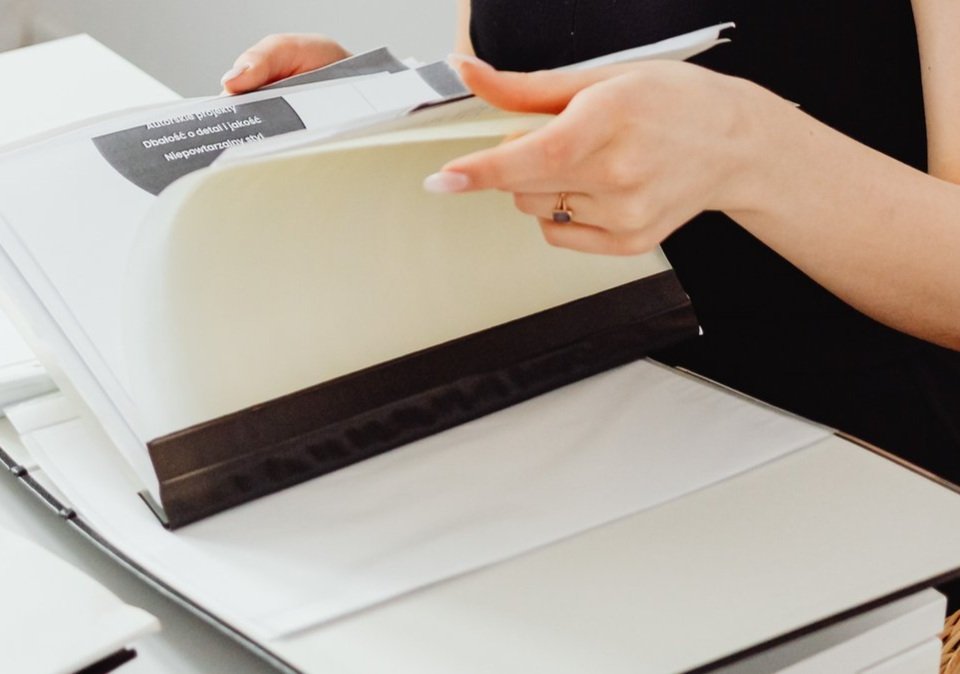
Certificate of Detention
What does a certificate of detention do?
What is a certificate of detention?
If no charges were filed with the court - then no records with the court exist. Therefore there is nothing within the court to seal or expunge. What does exist is a record of your arrest within the law enforcement system. A certificate of detention converts the arrest to only a detention in those records.
What is the value of having a certificate of detention?
While the word detention may sound similar to an arrest, there is an important legal distinction. Converting your arrest to a detention means that law enforcement is saying you were never arrested, merely detained. The effect of that means that if anyone were to ask you “have you ever been arrested?” for example in a job interview, legally you can truthfully answer “no”. Many people want the certificate of detention for that reason.

Sealing Your Criminal Record in California
When do I need a sealing of my record?
Sealing is for a crime you were charged with, but not convicted of.
If your goal is to clean up your criminal record, the process you need depends on what happened in your case. You need a sealing if you were arrested for a crime, and charged in court, but not convicted. If you were charged as a juvenile, never charged with the crime, or you were convicted of the crime, then you will need a different process. Please review this article to understand what process you need.
Examples of situations where a sealing would apply are:
Your case was dismissed before going to trial (under PC 851.8)
You earned a dismissal by successful completion of a diversion program (under PC 851.87)
You were acquitted following a trial (under PC 851.8)
Your conviction was reversed on appeal

Sealing A Juvenile Record In California
Automatic sealings vs. A sealing you must request
Will your record seal automatically or do you need to request a sealing?
Some juvenile records are sealed automatically. Your case would have been automatically sealed if it meets these requirements:
The case was a non-serious offense under WIC 707(b) (go here to read a list of disqualifying offenses)
You successfully completed probation
The case was dismissed in juvenile court post January 1st of 2015
How can I get my record sealed if it was not automatic?
If your case did not qualify for an automatic sealing, you will need request a sealing of your record from the court, and this is best done with the help of an attorney who understands the process.
To qualify for a sealing you must meet the following requirements under WIC 781 :
Either:
you are 18 or older (for a serious offense under WIC 707(b) you may need to be 21 years of age);
OR, the jurisdiction of the juvenile court has expired (usually 5 years)
Either:
Your offense was not a sex offense under WIC 707(b) that was committed at 14 years or older;
OR if it was, you have completed probation, and have been released by the Department of Corrections if you were committed. Please note, if you were committed to the DOC, the will need to be 21 years or older.
You have not been convicted of a crime of moral turpitude (these are usually crimes of violence or dishonesty)

Cleaning Up Your Criminal Record In California
How can I clean up my criminal record?
There are many ways of cleaning up your criminal record, and the process that you will need depends upon what happened in the criminal case that you are looking to have removed from your record.
The process will differ depending on the following factors:
whether you were an adult or juvenile
whether you were arrested
whether the case was charged
whether you were convicted, or the case was dismissed

All About Trials
A jury trial is your right
One of the rights afforded to you under the Constitution is the right to a fair and speedy trial by a jury of your peers. Because this is your right, you and only you can decide whether or not you want to resolve your case by way of a jury trial. Your attorney is there to help advise you in making that decision, and of course to handle that trial for you as your counsel.
Should I take my case to trial?
This a complex question, and the answer to it completely depends upon the facts and evidence in your case, as well as the other options that are available to you; so there is no straightforward answer. To answer this question you will need an attorney who has reviewed all of the evidence to walk you through what that trial would look like. At Keith & Highland Law, we take pride in our years of jury trial experience. While we are happy to take a case to trial, we want you to assess all of your options before deciding to do so. We can help you understand what to expect from a trial, and the likely and possible outcomes of one; then we can compare that to the best possible options you have of resolving your case without a trial. That way, we can help you make the absolute best decision for you and your case.

What To Do If You Have Been Convicted Of A Crime
What happens when you are convicted of a crime?
After a conviction, either by jury trial or plea, several things can happen:
you may be placed on probation
you may be sentenced to jail or prison
you may enter into a formal or informal diversion.
you may have to pay fines, fees, or restitution
you may be required to perform community service
you may be ordered to complete classes or treatment
How much jail or prison time may I be looking at?
Jail time vs. Prison time
Jail and a prison are not the same. A jail is a smaller, local facility, only used to hold people who are sentenced to time that is under one year. Prisons are larger facilities that are intended to house people for stays longer than one year. Because they are long term, prisons have more amenities and resources available to inmates than jails do.

What To Do If You Have Been Charged With A Crime
If I have been charged with a crime, what happens next?
Prepare for your court date
The first thing that will happen in your case is you will be given a court date. That date will be sooner if you are in custody, and a bit farther out if you are out of custody. You are entitled to an attorney for that court date, so it is best to start your search for an attorney in advance so that they can prepare for that date. A lot of people wait until last minute to start making calls because of the stress associated with doing so. The good news is that at Keith & Highland Law, we are used to working on short timelines. So we will still be able to help you even if your court date is quickly approaching. However, our clients tend to feel more at ease once they have us on board, because part of our job is to handle the stress of that court date for you. This may be new for you - but it’s not for us. We will walk you through your next steps and options and handle your court date for you.
What will happen at my first court date?
Your first court date is just one of many to come. The ultimate issues of your case - for example, what actually happened, or what the punishment should be, if any- will not be decided on that day. You do not need to present any evidence on that date. Your first court date is to take up initial important issues. Firstly, at that court date we would request the police reports so that we can review the evidence with you and make a gameplan. Secondly, we will take up conditions of your release with the court. That concerns whether you will be out of custody, or in custody while your case is pending, and what conditions you must follow. For more information on release conditions, read about them here under “after I get out of jail, what next?”

What To Do If You Have Been Arrested
What you can do if you or a family member have been arrested
Once someone has been arrested and taken into custody there are three things that can happen next:
they may be released on their own recognizance
they may be held until they post an amount of bail
they may be held without the possibility of bail
Immediate steps that can be taken to get someone out of custody
After an arrest, the person who has been arrested must be put before the court within 48 hours for their first appearance. At the first appearance one of the issues that will be addressed is whether or not that person can be released, or whether there will be bail imposed and if so - how much?
In making this determination the court will consider whether the person is a risk of flight, and whether there is a risk to the community if they are released. The court will also consider the allegations being made, and the person’s criminal history in making those determinations. You are entitled to have an attorney at this hearing so that we can make the arguments to get you or your loved one out of custody while the case is pending.

What To Do If Police Want To Speak With You
What does it mean if police want to speak with me?
If you are asking this question, then you likely are concerned that you have been accused of, or have done something that could have criminal implications. If police are looking to speak with you, that means they are conducting an investigation. If you have done anything, or have been accused of anything that could be a crime - it is safe to assume that you are subject to the investigation. If this is the case, it is time to consult with an attorney before moving any further. Even if you are innocent, you may be subject to an investigation and could unknowingly give information that could be used against you.

What To Do If You Have Been Accused Of A Crime
What to do if You Have Been Accused of a Crime
If you have been accused of a crime, the time to start thinking about getting legal help is now. Know your rights, your options, and speak to a lawyer to get advice on how to proceed. Don’t stand by just waiting to see what happens - being proactive helps you achieve the best result possible in your case and keep your record clear. It is never too early to get professional advice.
Schedule a free consultation.
